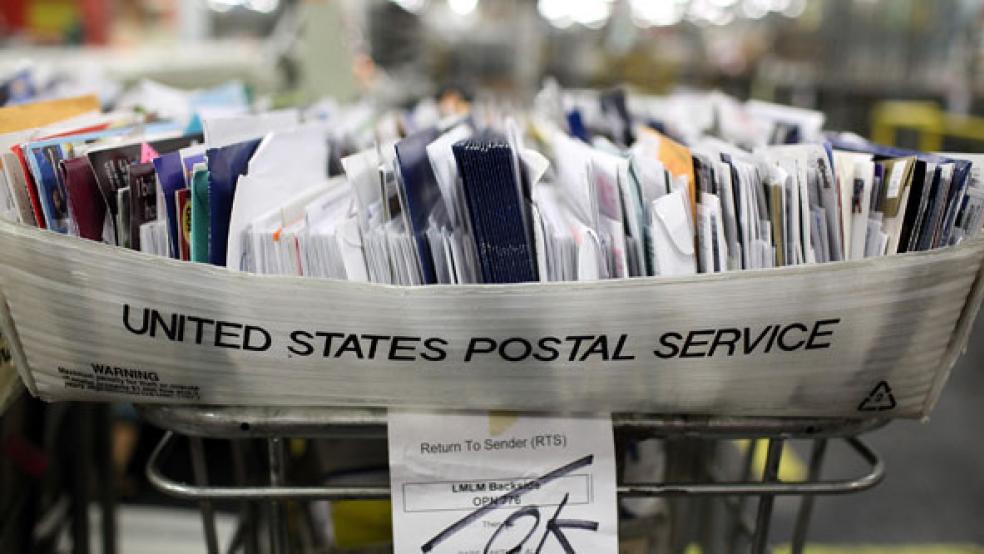Dear Roger:
I know you’ve resisted buying a computer and getting sucked into the digital world, but in a few days, you’ll be receiving a new, basic computer that I bought on line. It will be delivered by FedEx directly to your home because the United States Postal Service may be out of business soon, and you’ll have to find a way to pay your bills on line and communicate with your editors by email, not snail mail.
You may think I’m pulling your leg, but it’s true—USPS is on the brink of defaulting on a $5.5 billion healthcare payment for retirees, who have one of the richest “Cadillac insurance plans,” better than most federal employees and private sector workers. The Postal Service is actually running out of cash and may have to close down altogether this winter.
Yep, Senator Thomas R. Carper, (D-Del.), chairman of the subcommittee that oversees USPS, told “The New York Times that the situation is dire. He said, “If we do nothing, if we don’t react in a smart, appropriate way, the postal service could literally close later this year. That’s not the kind of development we need to inject into a weak, uneven economic recovery.”
You don’t have to say it—the odds of Congress reacting in a smart, appropriate way are approximately 14.6 trillion-to-one according to a source at the Congressional Budget Office, although Jon Stewart pegs the odds at a higher 20 trillion-to-one. Nevertheless, the Postmaster General, Patrick R. Donahoe, has a plan. It starts with every American putting a bumper sticker on the back of their vehicles that says Save the Post Office. Donahoe found an old stamp image of a humpback whale and slapped it on the bumper sticker in order to make an emotional connection with drivers everywhere. (The image for buses and fuel trucks is the more massive blue whale, and baby strollers get the iconic Monstro.) The sticker is free if you buy 10 years worth of “forever stamps.”
Not a bad first step. Donahoe had other ideas, too.
IDEA: Eliminate an additional 20 percent of the workforce--120,000 jobs. (Ten years ago, the Postal Service employed about 900,000 workers. It’s down to 653,000 and going south.) That will not exactly help our unemployment numbers, but it makes sense. Mail volume is down 20 percent so why do we need a bloated work force?
WHY DO IT? As a colleague of mine said, “The no-layoff clause is unbelievable. No wonder my local postman can sleep in his truck for hours at a time! And then have something like 75 accrued sick days that he'll get paid when he retires.”
WHY NOT? Because when 120,000 people “go postal” we’ll all have to duck at once.
IDEA: Eliminate Saturday delivery and reduce the number of sorting facilities by more than half-- from 500 to 200.
WHY DO IT? Because few people really need it. If you must have something on Saturday, fax it or send it by FEDEX. It would save more than $3.1 billion a year.
WHY NOT? In an election year, ending a service could hurt local and national politicians, including the President. In stumping ground Iowa alone, 44 cities have united to save their rural postal facilities.
IDEA : Deliver mail at least one day later. Because “Premium Pay” is paid for work at night and on Sundays, relaxing service standards by 1 day permits mail processing to take place during the following day, avoiding the bulk of night (6 p.m. to 6 a.m.) and Sunday processing cost premiums. And because ground transportation is usually less costly than air, but requires longer end-to- end transit times, delivering mail one day later allows the Postal Service to shift some mail from air to ground.
WHY DO IT? We would save $1.5 billion.
WHY NOT? More people would pay their bills on line, not wanting to risk high finance charges if the check doesn’t clear on time.
But wait, there’s more! With a goal of slashing $75 billion in annual spending by $20 billion, USPS could go commercial and sell a lot more than stamps. The Times says that post offices in some countries double as banks or sell insurance or cell phones. Yet we can’t do any of those things because the postal service has an idiotic rule barring it from making money. For instance, USPS can’t deliver wine or beer. So out of desperation, the agency is considering allowing advertisements on postal trucks and in post offices, doing more “last-mile” deliveries for FedEx and UPS and offering a premium hand delivered “messenger service.”
I know what you’re thinking, Roger. It’s become standard practice in the U.S. to pay more for less. We’ll soon be paying half a buck for one forever stamp. (All the more reason to pay on line.) And you probably think that the Postal Service woes are yet another sign of decline in a country that considers mail delivery part of its essential infrastructure. I wouldn’t worry too much, though. Your next best seller will probably be delivered on my Kindle, and the few brick and mortar bookstores that remain will have to ship the books the same way I’m shipping your new computer—by FedEx.
Best-selling author Roger Rosenblatt will never read this story since he gave the computer to his granddaughter’s school.






